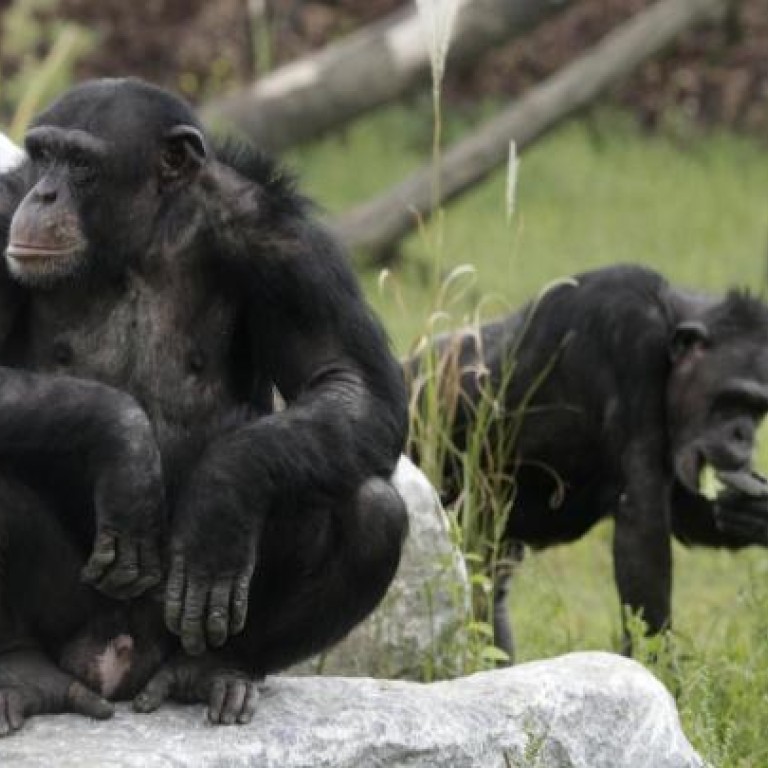
Apes suffer midlife blues too, research suggests
Chimpanzees in a midlife crisis? It sounds like the set-up for a joke.
But there it is, in the title of a report published on Monday in a scientific journal: "Evidence for a midlife crisis in great apes."
So what do these apes do? Buy red Ferraris? Leave their mates for some cute young bonobos?
"I believe no ape has ever purchased a sports car," said Andrew Oswald, an author of the study. But researchers report that captive chimps and orang-utans do show the same low ebb in emotional well-being at midlife that some studies find in people.
That suggested the human tendency towards midlife discontent might have been passed on through evolution, rather than resulting just from the stresses of modern life, said Oswald, a professor of economics at the University of Warwick in England who presented his work on Monday in the .
Several studies have concluded that happiness in human adults tends to follow a certain course between the ages of 20 and 70. It starts high and declines over the years to reach a low point in the late 40s, then turns around and rises to another peak at 70. On a graph, that's a U-shaped pattern.
When he learned that others had been measuring well-being in apes, "it just seemed worth pursuing the hunch that the U might be more general than in humans", he said.
Oswald, along with his co-authors, assembled data on 508 great apes from zoos and research centres in the United States, Australia, Canada, Singapore and Japan. Caretakers and other observers had filled out questionnaires to assess well-being in the apes - about such things as the degree to which each animal was in a positive or negative mood, how much pleasure it got from social situations, and how successful it was in achieving goals. The survey results produced that familiar U-shaped curve, adjusted to an ape's shorter lifespan.
"It's as though the U shape is deep in the biology of humans" rather than a result of uniquely human experiences. Given the social lives of apes, "it could still be something human-like we share with our social cousins", he said. "But our result does seem to push away the likelihood it's dominantly something to do with human life."
Professor Frans de Waal, a primate behaviour expert at Emory University, said when people judged the happiness of apes there might be a "human bias". But he called the results "intuitively correct" and said biological influence over the human pattern was "an intriguing possibility".
